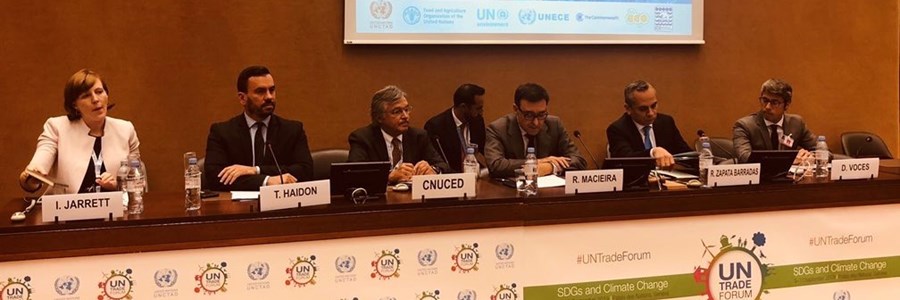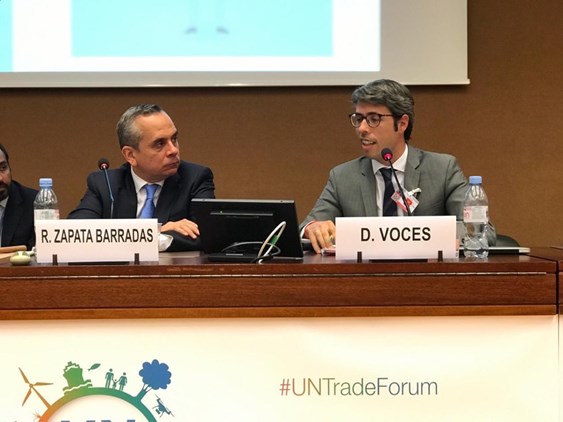Europêche defends sustainable fisheries subsidies at WTO

As part of the United Nations Sustainable Development Goals (SDGs) agenda, the World Trade Organisation (WTO) has been given a prominent role to regulate and discipline global fisheries subsidies. The main goal is to eliminate IUU1 subsidies and prohibit certain forms of fisheries subsidies that contribute to overcapacity and overfishing by 2020. In order to speed up the complex intergovernmental negotiations, a High Level Event on Trade, Climate Change and Oceans Economy took place in Geneva this week, where Europêche presented the huge progress made in Europe, to eliminate harmful subsidies and secure the sustainable and responsible management of fisheries resources.
Europêche, the leading trade body representing the fishing industry in Europe, gave full support to an ambitious multilateral agreement with the aim to abolish damaging fishery subsidies. The message sent by the sector was clear: “Public aid must continue with a clear objective: to achieve environmental, economic and social sustainability”.
There was consensus during the conference that no government shall grant or maintain any subsidy to vessels and operators engaged in IUU fishing. Furthermore, Europêche called for the elimination of subsidies that negatively affects targeted fish stocks that are in an overfished condition. Moreover, Europêche defended financial aid to modernise fishing vessels and to ameliorate energy efficiency. However, the sector emphasized that these investments must be subject to very restrictive conditions so as to avoid any increase in the overall capacity of the fleets and to fully respect international goals.

Daniel Voces, Managing Director of Europêche, declared: “While EU funding policies are strongly oriented towards sustainable fisheries, reduction of CO2 emissions, adjustment of fishing capacity, control and data collection programmes, Asian countries are using the money to exponentially increase their fleets and subsidize their running costs”. In this context, panellists reminded that the removal of capacity-enhancing subsidies will not reach WTO goals unless accompanied by sustainable fisheries management, transparency, accountability and enforcement. He continued: “The EU is the largest and most attractive fish market in the world. European fleets have to comply with the highest social and environmental standards while competing with non-EU fleets whose catches end up in our market. For that reason it is important to achieve an international level playing field, so as for all operators to play under the same rules”.
Mr Voces concluded: “Financial support is fundamental to improve safety at sea, working conditions, energy efficiency, and the competitiveness of our responsible fishermen who daily supply healthy seafood to a growing world-population. These investments are key in Europe to make the industry more attractive to young professionals, introduce new technologies, mitigate climate change, combat shortage of crews and allow for generational change”.
Ends
1 IUU: Illegal, Unregulated and Unreported fishing
Press contacts:
Rosalie Tukker, Policy Advisor of Europêche: +32 2 230 48 48 rosalie.tukker@europeche.org
Sources: Europeche
Attachments:
Tags: SDGs, World Trade Organisation, WTO, fisheries subsidies, IUU, overcapacity, overfishing, harmful subsidies, management, public aid, modernise fishing vessels, energy efficiency, CO2 emissions, level playing field, safety at sea, working conditions, competitiveness, young professionals, Climate change, generational change